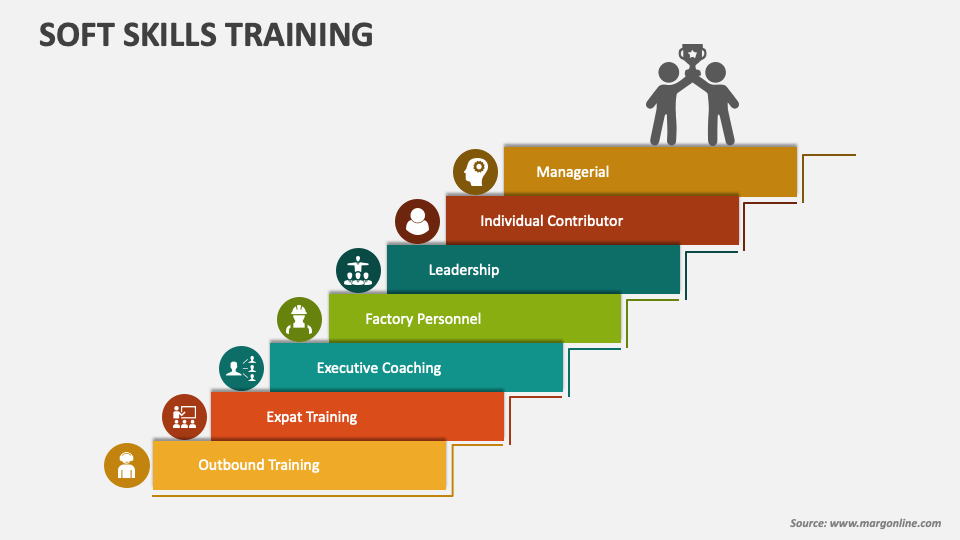Navigating the Workplace: Essential Soft Skill Training for Professionals

Image Source: Google
Soft skills are crucial in today's competitive workplace, as they can often be the differentiating factor between two equally qualified professionals. While technical skills are important, having a strong set of soft skills can greatly enhance your career prospects and help you succeed in a variety of roles. In this article, we will explore the essential soft skills that professionals need to navigate the workplace effectively.
The Importance of Soft Skills
Why are Soft Skills Important?
- Soft skills are essential for effective communication with colleagues, clients, and stakeholders.
- They are crucial for building strong relationships and networking within the workplace.
- Soft skills help professionals manage their time efficiently and prioritize tasks.
- They contribute to effective leadership and teamwork.
- Soft skills are often required for career advancement and promotions.
Impact of Soft Skills in the Workplace
- Professionals with strong soft skills are often more adaptable and can thrive in diverse work environments.
- Soft skills can help professionals handle conflicts and difficult situations with poise and professionalism.
- Employers value soft skills as they contribute to a positive work culture and employee morale.
- Professionals with strong soft skills are more likely to be trusted with leadership roles and responsibilities.
Essential Soft Skills for Professionals
Communication Skills
- Effective verbal and written communication is crucial for conveying ideas clearly and persuasively.
- Active listening is key to understanding colleagues and clients, fostering better relationships.
- Non-verbal communication, such as body language and facial expressions, also plays a significant role in communication.
Teamwork and Collaboration
- Collaborating with team members from diverse backgrounds and skill sets requires strong teamwork skills.
- Contributing ideas, actively participating in discussions, and respecting others' opinions are essential in a team setting.
- Effective teamwork involves being reliable, accountable, and willing to help others when needed.
Problem-Solving Skills
- Analytical thinking and critical problem-solving skills are essential for resolving challenges and making informed decisions.
- Being able to think creatively and approach problems from different perspectives can lead to innovative solutions.
- Adaptability and flexibility are key in navigating unexpected challenges in the workplace.
Emotional Intelligence
- Self-awareness and self-regulation are important aspects of emotional intelligence, helping professionals manage their emotions effectively.
- Empathy and understanding others' perspectives can improve relationships and resolve conflicts peacefully.
- Emotional intelligence also involves being aware of the emotions of others and responding appropriately in different situations.
Soft Skill Training for Professionals
Professional Development Workshops
- Attend workshops on communication, leadership, conflict resolution, and other soft skills to enhance your abilities.
- Participate in role-playing exercises and simulations to practice and improve your soft skills in a safe environment.
- Seek feedback from colleagues, mentors, or trainers to identify areas for improvement and track your progress.
Online Courses and Resources
- Enroll in online courses or webinars on soft skills topics to learn at your own pace and convenience.
- Read books, articles, and blogs on communication, emotional intelligence, and other soft skills to gain insights and strategies.
- Utilize online resources such as videos, podcasts, and assessments to further develop your soft skills.
On-the-Job Training and Mentorship
- Seek opportunities to practice and apply your soft skills in real-life situations within your current role.
- Observe and learn from experienced colleagues or mentors who exhibit strong soft skills in their interactions and decision-making.
- Solicit feedback from supervisors and peers to continuously improve and refine your soft skills in the workplace.
By prioritizing the development of essential soft skills, professionals can enhance their effectiveness, build stronger relationships, and advance their careers in today's competitive workplace. Investing in soft skill training is a valuable investment that can significantly impact your professional growth and success.
